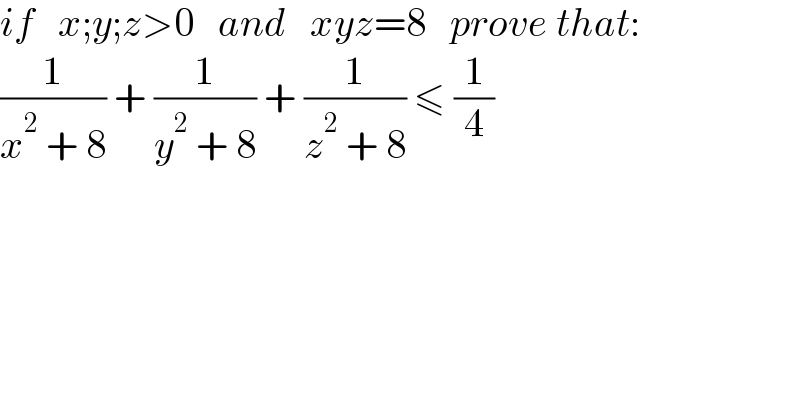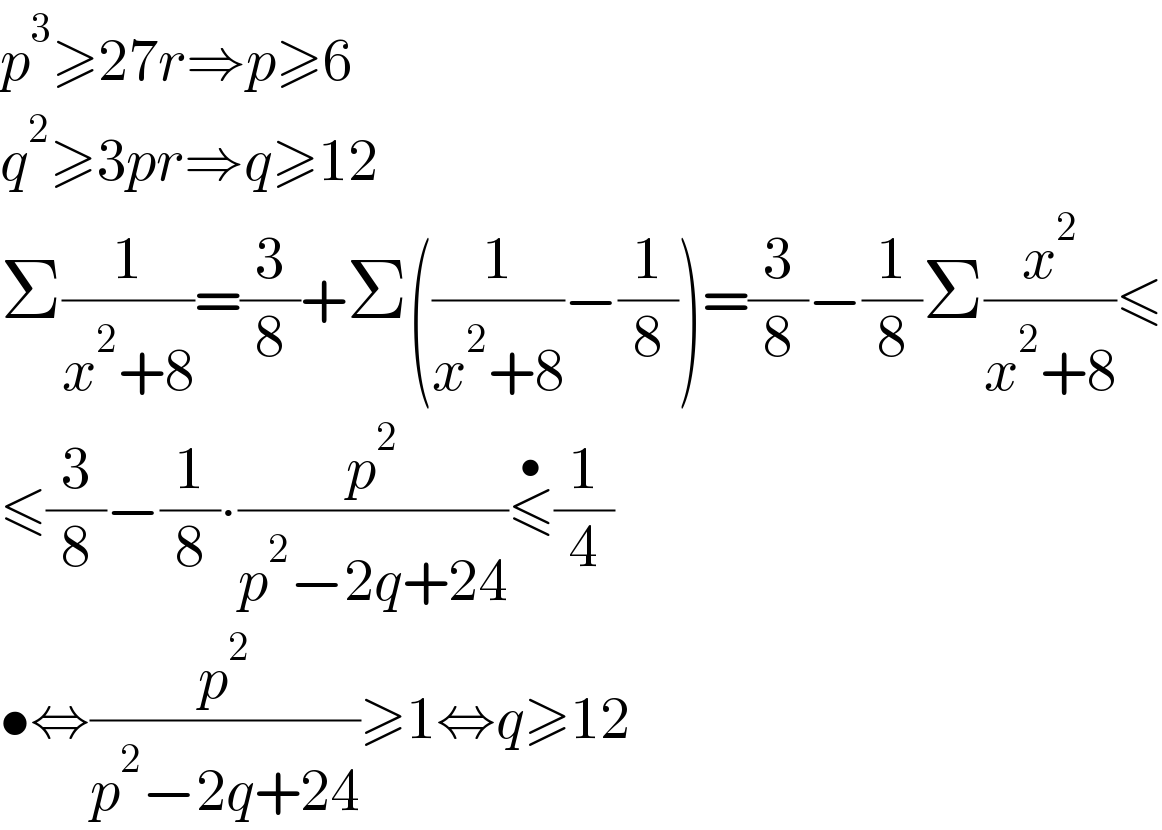
Question Number 149036 by mathdanisur last updated on 02/Aug/21

$${if}\:\:\:{x};{y};{z}>\mathrm{0}\:\:\:{and}\:\:\:{xyz}=\mathrm{8}\:\:\:{prove}\:{that}: \\ $$ $$\frac{\mathrm{1}}{{x}^{\mathrm{2}} \:+\:\mathrm{8}}\:+\:\frac{\mathrm{1}}{{y}^{\mathrm{2}} \:+\:\mathrm{8}}\:+\:\frac{\mathrm{1}}{{z}^{\mathrm{2}} \:+\:\mathrm{8}}\:\leqslant\:\frac{\mathrm{1}}{\mathrm{4}} \\ $$
Answered by dumitrel last updated on 02/Aug/21

$${p}^{\mathrm{3}} \geqslant\mathrm{27}{r}\Rightarrow{p}\geqslant\mathrm{6} \\ $$ $${q}^{\mathrm{2}} \geqslant\mathrm{3}{pr}\Rightarrow{q}\geqslant\mathrm{12} \\ $$ $$\Sigma\frac{\mathrm{1}}{{x}^{\mathrm{2}} +\mathrm{8}}=\frac{\mathrm{3}}{\mathrm{8}}+\Sigma\left(\frac{\mathrm{1}}{{x}^{\mathrm{2}} +\mathrm{8}}−\frac{\mathrm{1}}{\mathrm{8}}\right)=\frac{\mathrm{3}}{\mathrm{8}}−\frac{\mathrm{1}}{\mathrm{8}}\Sigma\frac{{x}^{\mathrm{2}} }{{x}^{\mathrm{2}} +\mathrm{8}}\leqslant \\ $$ $$\leqslant\frac{\mathrm{3}}{\mathrm{8}}−\frac{\mathrm{1}}{\mathrm{8}}\centerdot\frac{{p}^{\mathrm{2}} }{{p}^{\mathrm{2}} −\mathrm{2}{q}+\mathrm{24}}\overset{\bullet} {\leqslant}\frac{\mathrm{1}}{\mathrm{4}} \\ $$ $$\bullet\Leftrightarrow\frac{{p}^{\mathrm{2}} }{{p}^{\mathrm{2}} −\mathrm{2}{q}+\mathrm{24}}\geqslant\mathrm{1}\Leftrightarrow{q}\geqslant\mathrm{12} \\ $$
Commented bymathdanisur last updated on 02/Aug/21

$${Cool},\:{Thank}\:{You}\:{Ser} \\ $$
